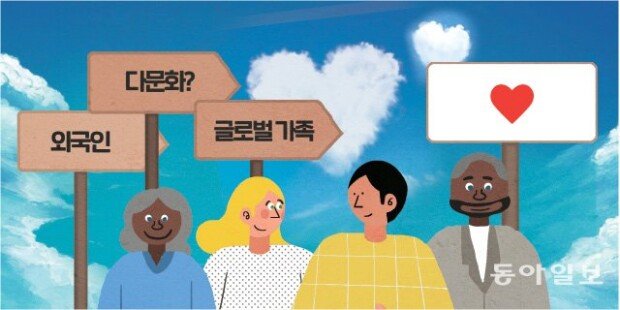All-embracing term needed for those with immigration background
All-embracing term needed for those with immigration background
Posted October. 30, 2020 07:22,
Updated October. 30, 2020 07:22

As a man of multicultural background, I go by different appellations when attending events in South Korea. The organizers use different names for me depending on the type and nature of the event. The variety of terms used in the public office or companies was beyond my head. Sometimes I was a “foreign Korean”; at times I was an “international family.” At other venues, they would call me a member of “multicultural family” or “global family.” I would also find myself being called an “immigrant” or “marriage immigrant.”
In terms of the specific impression, each term has a different ring to them. Terms that have “multicultural” such as “man of multicultural background” or “multicultural family” are often associated with female immigrants from poorer countries who came to Korea for marriage. Indeed, I’ve had hands-on experiences such perception when I was called a “multicultural” citizen. Those called a “foreign Korean” or a member of “global family” are typically required to play a jolly character on TV shows and media coverage. The last case involves monikers that include expressions like “immigrant” or “international marriage” in them. In this case, it is hard to make out who they are exactly referring to.
I believe it is time when we settled for a single, unified term of people like me. Koreans typically call each other “the man of our nation” in a much friendly way. Locals might question the importance of the names we go by, but those who have settled in Korea through immigration or naturalization are often confused by the whimsical choice of terms.
I believe that Koreans need to think of multicultural families as a legitimate member of Korea who has decided to live in the country, and I think the country of origin must be specified in official documents. Korea has enough experience with people of multicultural background. In fact, many countries are paying a keen attention to Korea’s multicultural family policy as research subject.
A prospect holds that by 2024, foreigners will take up more than 5% of the entire population in Korea, owing to the accelerating share of foreigners and shrinking population of the country. When the share of people with “immigration background” such as foreigners, offspring of immigrants, or naturalized citizens, accounts for more than 5% of the entire population, the country is categorized as a multicultural or multiracial nation by the OECD. More proactive social discussions will be needed to devise a term to embrace each one of them.
The social contract of language must be simplified to alleviate the confusion inflicted upon those who are sometimes “foreigners” and at times “multicultural families” if not “global families.” That will help us address the big and small discriminations witnessed in Korean society.







